Singing for Jesus at Easter
Tabitha leans on the table and writes to her sponsor about how she and her family will celebrate Easter.
She is the younger of two children in a family with a strong Christian background. Her father is an evangelist and singer, and recently released his second album.
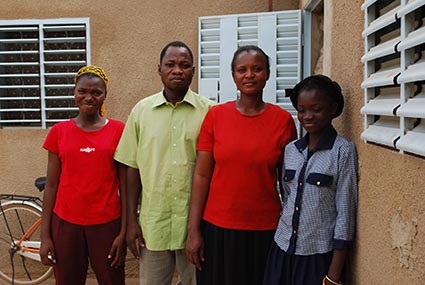
In one of his songs, Tabitha’s father defines Easter as the celebration of Jesus’ sacrificial death for humanity. This joint passion for the gospel and music is something Tabitha’s father passed on to her.
Next to Tabitha sits another girl of the same age, Roussina. The two girls have been friends since grade one and share many things, including plans for Easter. (more…)
Continue Reading ›Teaching the True Meaning of Easter
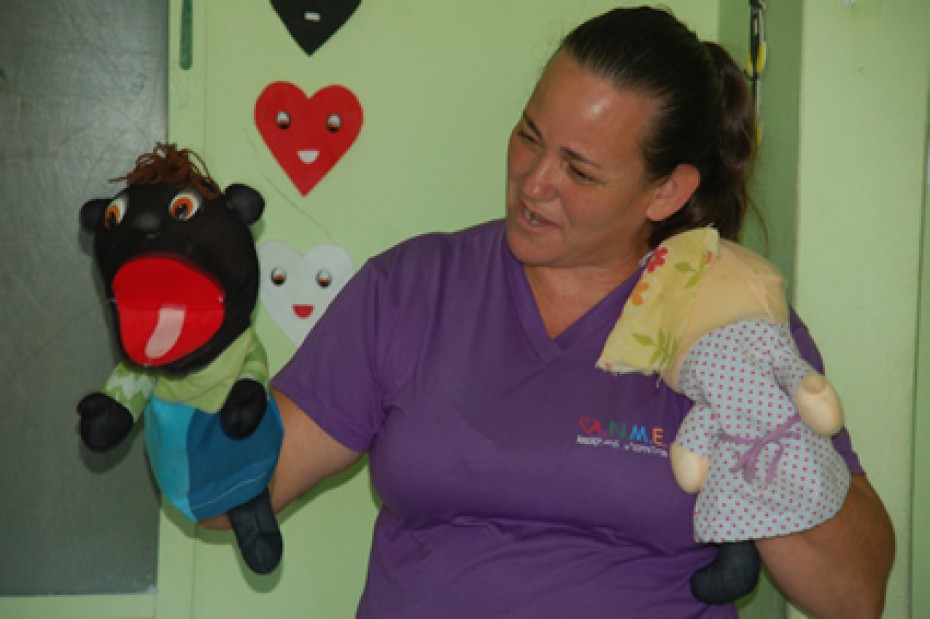
There is a lot of commercialism that comes this time of year and few people talk about Jesus, His sacrifice on the cross, and His resurrection.
Continue Reading ›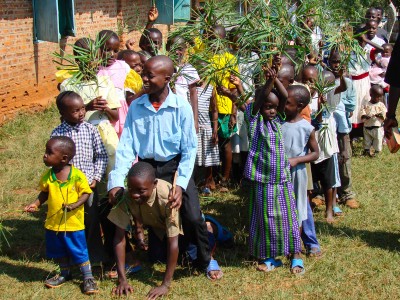
Easter in Kenya
It’s dawn in the village of Burendwa, western Kenya. On a chilly Sunday morning, children wake up anxiously as they wait for their mothers to prepare breakfast. Sebastian rubs his eyes and rises from his bed.
It’s Easter Sunday and all children, youth, women and men are eagerly waiting to go to church and celebrate the resurrection of Jesus Christ. As Sebastian washes his face he hums,
“He is risen!”
“He is risen!”
“And He lives, forever more.”
Suddenly he hears other children in his village and realizes he is late. He quickly puts on his best suit and leaves for church.
The sun’s rays can be seen rising from the east; there is excitement on everyone’s faces. Some women are balancing pots full of water on their heads with a lot of prowess. Some are heard talking in loud tones about the day’s events. Mama Sebastian says to her family,
“Kweli hi itakuwa siku njema tukila na tukisherekea kufufuka kwake Yesu Mwokozi Kristo!”
Translation:
“This is going to be a great day as we eat together and celebrate the resurrection of Jesus Christ our Savior!”

How Do I Share Holiday Traditions With My Sponsored Child?
We often get questions in our contact center regarding different holidays. Things like, “What are some holidays that are special to my child?” Or, “To be sensitive to my child’s culture and customs, are there things I shouldn’t talk about?”
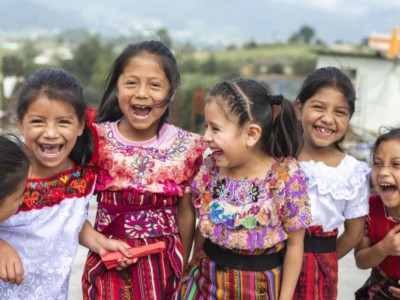
Easter in Guatemala
Easter in Guatemala is a colorful and vibrant time. Guatemalans celebrate with parades, traditional foods and celebrations at home. Read on to experience it for yourself!
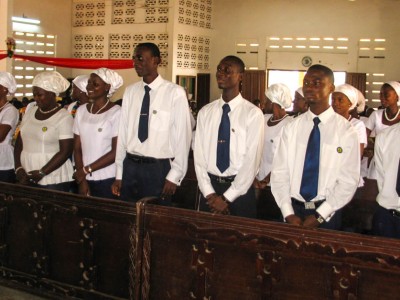
Easter in Ghana
To Ghanaian Christians, Easter is a day of remembering what Christ did on the cross for all mankind; not just remembering but knowing that it was the foundation for their salvation. They believe that without the passion of Christ, people would not know that there is a place for them to go after death.
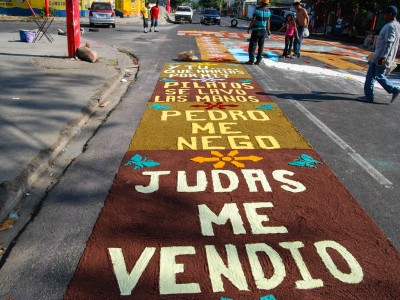
Easter in El Salvador
Easter Week in El Salvador is celebrated differently than the way it is celebrated in the United States. In the United States, Easter often includes the Easter Bunny and egg hunts. In El Salvador as well as many other Central American countries, it is celebrated with a much different atmosphere.
Easter feels like summer. The sun shines strong in the skies, the breeze somehow fresh, somehow warm. It is definitely the middle of the dry season in El Salvador, the equivalent of summer in northern lands. Everything around, from sale signs to music, talks about sun and sand. The opportunity to enjoy beaches that are just an hour away from San Salvador is almost here.
For a full week, students are out of school and have the opportunity to enjoy beaches, visit relatives and do nothing; it is almost the equivalent to spring break in the United States. However, there is one unequivocal characteristic that reminds every Salvadoran that it is not just a break, and that there is more than just sun and fun waiting for us during that week in April.
In El Salvador, the week of Easter is Holy Week, and the festivities revolve around Roman Catholic tradition. Roman Catholics account for nearly 60 percent of the population. Protestant (also called evangelical) churches account for slightly more than 20 percent.
Even though El Salvador does not have an official religion, since the time of colonization Roman Catholic traditions have been the most common and most practiced in the country. Easter Week is the most important celebration for the Roman Catholic Church.
“It is slightly different for the Protestant Church” says Sister Wendy, wife of Pastor Rodolfo at the Baptist Tabernacle Church of Majucla. “For most of the children, Easter Week is an opportunity to spend time with their families. People take advantage of this time to go back to their homeland and spend time with their families.”
One of the most important Easter traditions in El Salvador is Lent. During this 40-day period before Easter, named “Cuaresma” in Spanish, people fast, pray and give alms. The last week of the 40 days is called “Bigger Week” or “Holy Week.”
On Good Friday, there are two major processions. Early in the morning there is the “passion,” which is the representation or commemoration of the walk that Jesus took with the cross toward Golgotha. It is finished around noon.
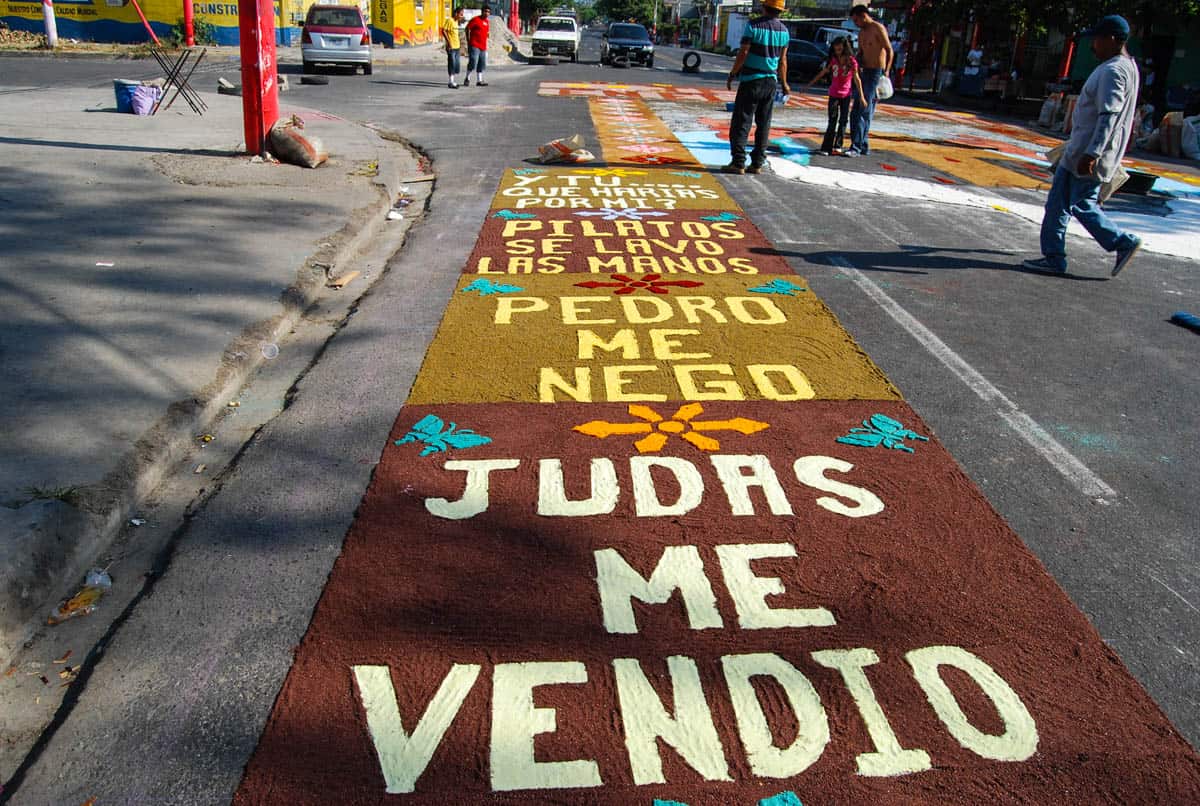
Then in the afternoon, Roman Catholic churches and communities start making rugs on the streets with sawdust, which will later be part of the path where the “holy funeral procession” will pass, carrying the symbolic dead body of Christ.
The making of these rugs represents one of the greatest traditions for the Roman Catholic Church in El Salvador, since entire streets and main avenues in many places of the country are completely closed. The rugs cover entire streets.
Appreciation of the rugs goes beyond religion. For Salvadorans, it is about appreciating the art and about appreciating the effort the people put into making the rugs. For Salvadorans, it is a gift, an offering they are making for Jesus.
Catholic or not, Salvadorans go out into the streets on Good Friday to see the rugs. Apart from this tradition for Good Friday, Holy Week develops differently for Protestants.
For the Evangelical Church in El Salvador, Holy Week is an opportunity to spread the Gospel to as many people as possible. If there is the opportunity to preach the Gospel and carry more people to the feet of our Lord, the church takes advantage of it and tells El Salvador the true meaning of Holy Week.
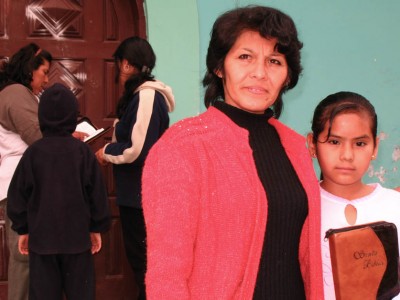
Easter in Peru
To talk about Easter is to talk about Christianity, and to talk about Easter in Peru is to talk about a variety of traditions in the country. The most common traditions began during the colonial times when the Spaniards brought their culture, and their religion, to Peru.


